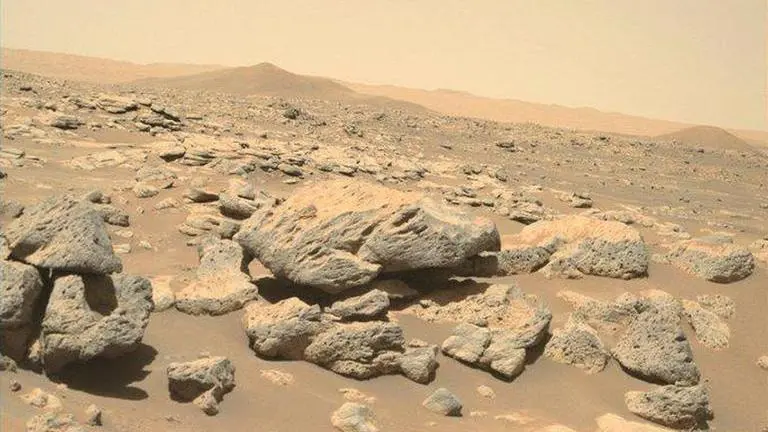Updated 1 December 2021 at 19:27 IST
Mars' Arabia Terra region once hosted water very briefly, scientists discover in new study
A planetary scientist from the Northern Arizona University has found that the Arabia Terra region of Mars once hosted water for a very brief period of time.
- Science News
- 3 min read

A planetary scientist from the Northern Arizona University (NAU) has found that the Arabia Terra region of Mars once hosted water for a very brief period of time, according to a new study. Funded by the NASA Mars Data Analysis Program, the study was conducted by NAU in collaboration with John Hopkins University and has opened a new discussion about the early history of the red planet. Talking about the finding, PhD candidate from NAU Ari Koeppel said as per Phys.Org,
We were specifically interested in using rocks on the surface of Mars to get a better understanding of past environments three to four billion years ago and whether there could have been climatic conditions that were suitable for life on the surface.
He added that his team was aiming to determine whether the region had stable water, and find out how long the water lasted along with the surface temperature and the kind of atmosphere Mars must have had in the past. Published in the journal Geology, the study is titled "A fragile record of fleeting water on Mars" and was completed using remote sensing instruments on orbiting satellites.
New discovery opens a new set of questions
The Arabia Terra region, which was named by Italian astronomer Giovanni Schiaparelli in 1879, is a region that contains craters, volcanic calderas, many layers of sedimentary rocks. Astronomers studied the layered rocks in this region and focused on factors such as thermal inertia, which is the ability of a material to change temperature, along with evidence of erosion, the condition of the craters and the minerals present in them. Gathering data from the orbiting satellites, the experts observed that the regions of Arabia Terra dried out much earlier than other regions known to have water in the past.
Koeppel explained the findings saying, "We figured out these deposits are much less cohesive than everyone previously thought they were, indicating that this setting could only have had water for only a brief period of time". He added as per Phys.Org, "For some people, that kind of sucks the air out of the story because we often think that having more water for more time means there's a greater chance of life having been there at one point. But for us, it's actually really interesting because it brings up a whole set of new questions."
Advertisement
Now that the scientists have new questions to ponder over, they will look to find answers about the conditions that made the region lose water so early and even explore Mars' groundwater system that would have made the water sink below the surface.
Image: Twitter/@NASAPersevere
Published By : Harsh Vardhan
Published On: 1 December 2021 at 19:27 IST
